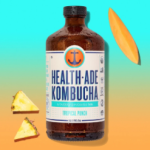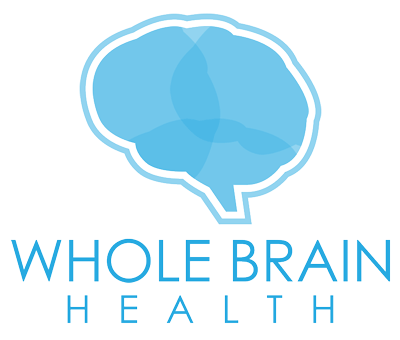What’s the Deal?
Probiotics. What are they? Why are all the health influencers promoting them on instagram and why should we be consuming them for our body? I am here to answer all your questions and provide evidenced based information for why everyone should be filling their microbiome with these super foods. Let me begin by discussing what the microbiome is and why it is so important in regulating our bodies metabolic functions.
Our gut is filled with trillions of different bacteria, good and bad, that form an ecosystem known as the microbiome. These good bacteria differentiate in every individual but help to serve the same purpose. They are able to protect us from infection, lower inflammation and protect against certain diseases. As we get older, our gut bacteria begins to lose its diversity and slowly diminish, that is where probiotics come in. Probiotics are able to introduce new strains of healthy bacteria to our gut that help with digestion and immunity (Landete et al., 2017).
Health Benefits
Probiotics should be incorporated into our daily routine for various reasons. Currently, the average American diet is very high in saturated fats, processed foods and low in fruits, vegetables and whole grains (Landete et al., 2017). This lifestyle is leading to an increase in diet related diseases such as cardiovascular disease, obesity and colon cancer (Landete et al., 2017). Probiotic rich foods and supplements can help to minimize the risk of getting these diseases and grow the resistance of our microbiome (Markowiak, 2017). There is a term called “colonization resistance” that is used to describe our bacteria fighting off the overgrowth and colonization of bad bacteria in our gut (Kok & Hutkins, 2018). This is used to protect our microbiome and the lining of our gut.
Not only do probiotics help our immunity, but other known benefits include lowered risk of developing bladder cancer and cardiovascular disease (Kok, 2018). Believe it or not there are also ways to improve the functionality of these probiotics we ingest. By incorporating another type of food known as Prebiotics we can help our microbiome ten times stronger. Prebiotics are compounds known to “feed” the good bacteria in our gut and produce the nutrients necessary for digestion of absorption of vitamins and minerals.
Probiotic Rich Foods
- Kombucha
- Cultured Yogurt
- Kefir
- Sauerkraut
- Kimchi
- Miso
- Apple Cider Vinegar
- Supplements
Prebiotic Rich Foods
- Sweet Potato
- Banana
- Spinach
- Onion
- Garlic
- Asparagus
- Supplements
Main Takeaway

Probiotics and prebiotic are a great way to promote a healthy gut microbiome and when ingested daily they can optimize digestion, lower bloat and promote immunity(Landete et al., 2017). If you are not able to obtain these nutrients and bacteria from the food you consume, supplements are always an option! I recommend a symbiotic supplement that includes both the prebiotic and probiotic.
Next time you’re shopping for your weekly groceries try to pick up some kombucha as your first step. Kombucha is a fermented tea filled with an amazing boost of caffeine and probiotics to keep you energized throughout the day, My favorite brand is Health-Aid Kombucha and their new “Tropical Punch” flavor is amazing!
With numerous studies pointing to the health benefits of probiotics there is no reason for why we should not be consuming them. They help maintain the balance of our digestive tract and make our gut happy!
References
Landete, J., Gaya, P., Rodríguez, E., Langa, S., Peirotén, Á., Medina, M., & Arqués, J. (2017). Probiotic Bacteria for Healthier Aging: Immunomodulation and Metabolism of Phytoestrogens. Biomed Research International, 2017, 1-10. doi: 10.1155/2017/5939818
Kok, C., & Hutkins, R. (2018). Yogurt and other fermented foods as sources of health-promoting bacteria. Nutrition Reviews, 76(Supplement_1), 4-15. doi: 10.1093/nutrit/nuy056
Markowiak, P., & Sliz ̇ewska, K. (2017). Effects of Probiotics, Prebiotics, and Synbiotics on Human Health. Nutrients, 9(9), 1021. doi: 10.3390/nu9091021
Related Articles:
- Stress and Brain Health
- Learn about the Brain
- What’s The World’s Most Craved Food: Chocolate
- 3 Ways to Have More Meaningful, Brain Healthy Conversations
